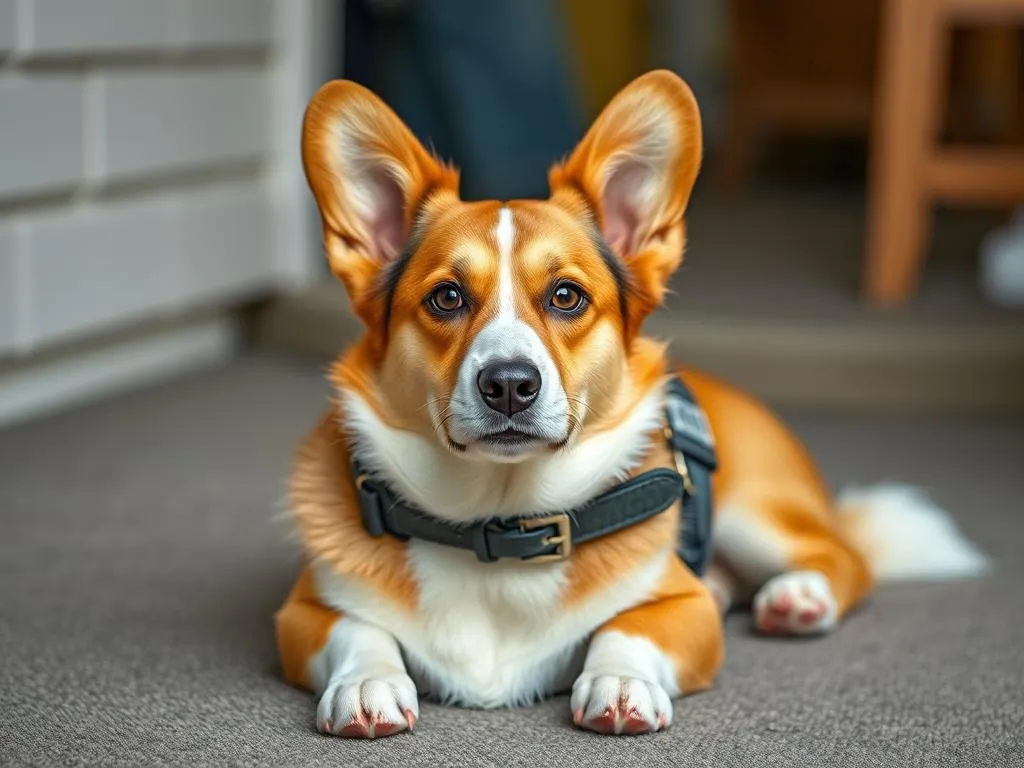
Service dogs play a crucial role in the lives of individuals with disabilities. These highly trained animals provide assistance that can significantly enhance their owners’ quality of life, allowing them to navigate daily challenges with greater ease and independence. Among the various breeds that are typically recognized as service dogs, Corgis present an interesting case. This article explores the suitability of Corgis as service dogs, their training requirements, and their unique traits, while addressing the question: can Corgi be service dog?
Understanding Service Dogs
Definition of Service Dogs
A service dog is defined as a dog that has been specifically trained to perform tasks for an individual with a disability. This goes beyond companionship; these dogs are trained to assist with specific needs, such as guiding individuals with visual impairments, alerting those with hearing loss, or providing support for individuals with mobility challenges. It’s essential to distinguish between service dogs, therapy dogs, and emotional support animals. While therapy dogs offer comfort and emotional support in settings like hospitals and nursing homes, and emotional support animals provide companionship, only service dogs are granted public access rights under the law.
Legal Framework
The Americans with Disabilities Act (ADA) outlines the legal definition of service dogs and their rights. According to the ADA, service dogs must be trained to perform tasks directly related to the individual’s disability. This law ensures that individuals with disabilities can access public spaces with their service dogs, promoting inclusion and independence.
Common Breeds Used as Service Dogs
Most service dogs are large breeds known for their strength and trainability. Popular breeds include Labrador Retrievers, Golden Retrievers, and German Shepherds. These breeds possess characteristics such as high intelligence, strong work ethic, and a calm demeanor, making them suitable for various tasks associated with service work.
Overview of Corgis
Corgi Breeds: Pembroke and Cardigan
There are two main types of Corgis: the Pembroke Welsh Corgi and the Cardigan Welsh Corgi. Both breeds share some similarities, yet they have distinct characteristics.
- Pembroke Corgis are known for their shorter tails and slightly lighter build. They are often friendly, outgoing, and eager to please.
- Cardigan Corgis have a longer tail and a more robust frame. They tend to be more reserved but are equally loyal and affectionate.
Both breeds exhibit intelligence and a playful nature, making them engaging companions.
Temperament and Behavior
Corgis are often described as intelligent, loyal, and energetic. Their playful disposition contributes to their adaptability in various environments. They thrive on interaction and enjoy being part of the family, which can be beneficial when serving as a service dog. Their social nature allows them to connect well with people, an essential trait for any service dog.
Can Corgis Be Service Dogs?
Suitability of Corgis as Service Dogs
When evaluating whether Corgis can be service dogs, several factors come into play.
-
Physical Traits: Corgis are small to medium-sized dogs, which can be advantageous in certain contexts. Their size allows them to navigate tight spaces and be more easily transported. However, their smaller stature may present challenges when it comes to tasks requiring strength or mobility assistance.
-
Temperament Traits: Corgis are known for their intelligence and trainability, making them capable of learning a variety of tasks. Their loyalty and social nature can help them form strong bonds with their handlers, which is critical for a successful service dog partnership.
Training Requirements
Training a Corgi as a service dog involves a comprehensive program that includes both basic obedience and task-specific training. Essential aspects of training for Corgis include:
-
Obedience Training: Corgis must learn to respond to commands consistently and reliably. This foundational training ensures that the dog can be controlled in various situations.
-
Task Performance: Depending on the individual’s needs, Corgis can be trained for specific tasks such as retrieving items, alerting to sounds, or providing emotional support.
Successful training relies on positive reinforcement techniques, which are particularly effective with Corgis due to their eagerness to please.
Success Stories
There are several heartwarming examples of Corgis that have successfully served as service dogs. These stories often highlight how a Corgi’s unique traits have positively impacted the lives of their handlers.
For instance, one Corgi named “Biscuit” was trained to assist a young woman with mobility issues. Biscuit not only helped her navigate obstacles but also provided emotional support, making a significant difference in her daily life. Testimonials from Corgi owners with disabilities often underscore the importance of companionship and assistance provided by these remarkable dogs.
Challenges and Considerations
Potential Limitations of Corgis
While Corgis have many admirable traits, there are limitations to consider when evaluating their suitability as service dogs.
-
Size and Strength: Their smaller size may limit their ability to perform certain tasks, particularly those requiring significant physical strength. For instance, a Corgi might struggle to pull a wheelchair or provide physical support for a person with mobility challenges.
-
Temperament Issues: Corgis are known for their independent nature, which can sometimes translate into stubbornness. This temperament may make training more challenging, requiring a patient and skilled handler to ensure consistent results.
Health Considerations
Corgis are prone to certain health issues, including hip dysplasia and obesity, which can be exacerbated by the demands of service work. Regular health check-ups and a proper diet are crucial for maintaining their well-being. It’s essential to ensure that any Corgi aspiring to be a service dog is in good health to handle the rigors of their role.
Training a Corgi as a Service Dog
Finding the Right Trainer
Choosing a qualified service dog trainer is vital for successfully training a Corgi. Look for trainers with experience in service dog training and an understanding of Corgi-specific behaviors. Recommendations from local support groups or online communities can help identify reputable trainers.
Training Process
Training a Corgi for service work typically involves several stages:
-
Basic Obedience: This foundational training includes commands such as sit, stay, and come. Consistency and repetition are key to ensuring the Corgi responds reliably.
-
Task Training: Once basic obedience is established, the focus shifts to teaching specific tasks. This might include training the Corgi to retrieve items, alert to sounds, or provide comfort during anxiety.
-
Public Access Training: Service dogs must learn to behave appropriately in public settings. This includes socialization with other people and animals, as well as exposure to various environments.
Ongoing Training and Socialization
Ongoing training and socialization are essential for maintaining a Corgi’s skills as a service dog. Regular practice of commands and tasks ensures that the Corgi remains sharp and responsive. Socialization with different people, environments, and other dogs also helps reinforce their training and adaptability.
Suggestions for Training Resources
There are numerous resources available for training service dogs, including books, online courses, and local training classes. Engaging with community support groups can also provide valuable insights and encouragement throughout the training process.
Conclusion
The potential for Corgis to serve as service dogs is certainly promising, given their intelligence, loyalty, and adaptability. However, individual assessment is crucial to determine if a Corgi is the right fit for a specific service role. While Corgis may present some limitations due to their size and temperament, they can thrive in service roles with appropriate training and support.
In summary, Corgis can indeed be service dogs if they are well trained and matched to the individual’s needs. Their unique traits may provide invaluable support and companionship, making them a viable option for those seeking a service dog. With the right approach, a Corgi can be a wonderful partner in navigating the challenges of everyday life.








